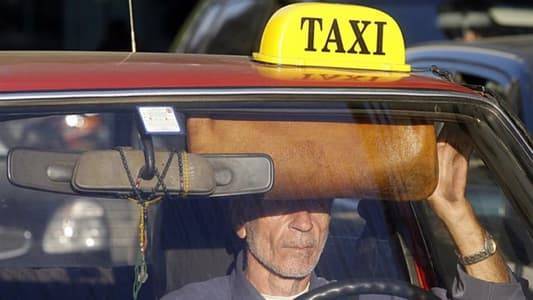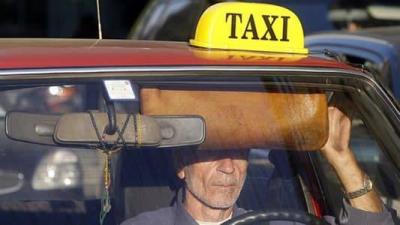Two girls are whispering while sitting in the back seat of a taxi. The first asks, "How much is the service?" The second replies, "The fare is still 50,000." The first retorts, "No, I heard it's gone up to 80." Here, the driver intervenes, settling the debate by reassuring them: "I will charge 50,000," and then asks them to prepare for a fare increase soon. Just like someone asking the price of a kilo of potatoes or tomatoes at the vegetable market, people daily inquire about the service fare, which has not stabilized since the onset of the economic crisis. Whenever the price of a fuel tank rises, the service fare follows suit. After the price of a fuel tank exceeded 800,000, Marwan Fayyad, the head of the General Union of Drivers and Transport Workers in Lebanon, ignited the "conflict" over fares between taxi drivers and passengers by raising it from 50,000 to 80,000 Lira.
So far, most drivers continue to charge 50,000, but it seems that in the general atmosphere, it's "not going to last." The driver who is satisfied with 50,000 does not miss any opportunity to "complain" because of the high prices, particularly the cost of gasoline and spare parts, eventually concluding that "50,000 is no longer enough." Imad, who takes a taxi to work daily, shares: "Their cars always just came out from repair, or they have been driving around with an empty car since morning, or they don't have change to return the leftover from the 100,000, waiting for you to say: 'Keep it with you.'"
What if they ask for more? Some drivers have raised the fare to 60, 70, or 80 thousand Lira, and one of them audaciously asked Foad for one million Lira to take him from Baabda to Hamra, and after some negotiation, lowered it to 200,000. Another driver plainly wrote on the glass of his car: "The service is now 60,000." Since those who raise the fare usually do not inform passengers until payment is due, passengers are anxious about the amount they will have to pay for the ride. This is the case with Thuraya, who travels from Zuqaq al-Blat to her university on the airport road, holding a 100,000 Lira note for round-trip transport. She constantly asks herself: "What if they ask for more than 50,000?" She contemplates asking the driver how much he wants at the start of the trip, but finds that her question "might give him the right to charge whatever he pleases." No driver has yet asked her for more than 50,000, and "if they do, I won’t agree and I will get out of the car." We ask her: "What if 80,000 becomes a reality?" She responds: "I will switch from taxis to vans or buses, or I'll walk."
Sudden fare increases, without standardization, lead to disputes between passengers and drivers. A few days ago, Nawal took a taxi from Saint Michael's Church to the Janah area, stating, "It's a short distance that I could walk if it weren't raining." As soon as she sat down, the driver informed her: "The service is now 80." She refused to pay the increase, and after some argument, she got out of the car and took another one for 50,000. Meanwhile, Nabil did not argue with the taxi driver who charged him 70,000 for a short trip. He said, "The man is elderly, and I wanted to reach my appointment quickly. Besides, what value is there in the additional 20,000?"
Drivers have their justifications for sometimes raising fares. The main one is the "concern" about securing gasoline, aside from the other vehicle expenses, from oil changes to brakes, periodic maintenance, and repairs. Taxi driver Ali states that his taxi is less than ten years old, so "one must consider, when calculating the expenses incurred by the taxi driver, the car's consumption when used to transport passengers." This implies that the driver is thinking about saving for a second taxi after the one he drives "dies." Although Ali still charges 50,000 for short trips, he affirms the necessity of raising fares, especially since "with the customs dollar calculation, the prices of spare parts will increase." He sees a fare increase as "imminent" since drivers are asking each other if they should start calculating the new fare at 80,000. For passengers, when new rates were proposed, "they no longer found 50,000 excessive."
This profession is no longer sufficient to meet Fadi's needs, who parked his taxi a year ago and became a broker. He does some simple calculations: "An eight-hour work shift needs at least one tank of gasoline. To cover its cost, you need more than 16 passengers," then he asks, "Where can I find 16 passengers? And do low salaries allow employees to afford a taxi?" He concludes his remarks by describing taxi drivers as "the weakest group in society," as they "calculate a thousand things, especially since if a tire breaks, replacing it will cost at least 50 dollars."




